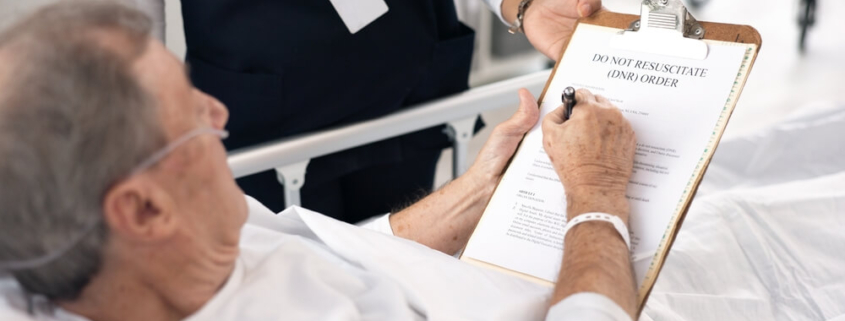Myths and Facts About Advance Healthcare Directives
Having an advance healthcare directive in place is the best way to make sure you are treated exactly the way you want to be treated in the event of a critical, incapacitating injury or illness.
While a lot of people know what an advance healthcare directive is, data shows that nearly 2/3rd of the adults in the country do not actually have one. This is primarily due to the fact that most people do not know just how important an advance directive is and the fact that there are many myths and misconceptions associated with it.
With legal advice from a knowledgeable estate planning lawyer, you can create the appropriate advance healthcare directive to suit your unique needs. In this article, we take a look at five of the most common myths associated with advance healthcare directives.
Myth #1
You Need an Advance Healthcare Directive Only When You Are Old
Fact: You are never too young to create an advance healthcare directive. The COVID-19 pandemic has shown us just how vulnerable we really are and what kind of risks we face on a daily basis – without even knowing it. Moreover, an untimely accident – caused by your own negligence or by someone else’s – can leave you incapacitated for weeks or even months. These are possibilities that you need to prepare for – no matter how young and healthy you are.
Myth #2
You Need to Create an Advance Healthcare Directive Only If You Do Not Want End of Life Care
Fact: Although end of life care is an important subject which needs to be addressed in your advance healthcare directive, it is not the sole purpose of creating a directive in the first place. In fact, the primary purpose of creating an advance directive is to designate a person who will act as your healthcare agent and make decisions on your behalf in case you are unable to do so due to an injury or illness.
Apart from this, there are several other things you can specify in your healthcare directive, which include:
- Whether you want to donate your organs and tissues after your death
- Whether or not you want treatment for alleviating pain – especially if the treatment could hasten your death
- Designating the person who will serve as your primary physician
- And other wishes, if you have any
Myth #3
Once You Create an Advance Healthcare Directive, You Can No Longer Make Healthcare Decisions of Your Own
Fact: An advance healthcare directive comes into the picture only when you become physically or mentally incapacitated and lack the capacity to make healthcare decisions by yourself. In other words, as long as you are mentally and physically competent enough to make decisions for yourself, you can do so.
Myth #4
The Doctor Must Do Whatever My Directive Says
Fact: While healthcare directives are legally binding, the doctor who treats is obligated to follow the directive only as long as your wishes are medically appropriate. If a particular wish of yours is medically inappropriate or is illegal under state or federal law, the doctor is not required to follow it. This is one of many reasons why you should get your healthcare directive vetted by an estate planning attorney and make sure all your instructions are legally appropriate.
Myth #5
Once I Create an Advance Healthcare Directive, I Cannot Modify It
Fact: You can modify your healthcare directive any time you want, for any reason you want. In fact, it is advisable to review your directive from time to time and update it if necessary to make sure it accurately reflects your wishes.
For instance, if you designate your spouse as your healthcare agent and if you decide to file for divorce later, it is important to update your directive and designate a different person as your healthcare agent.
Similarly, you should update your directive if the person whom you appointed as your healthcare agent dies or if you are diagnosed with a serious medical condition.
Lastly, even in the absence of life changing events like death or divorce, your thoughts on how you wish to be treated, whether you want to donate your organs, and whether or not you need end of life care might change drastically as you get older. So, it is a good idea to review your healthcare directive at least every 10 years and update it if needed.
Need to Create or Modify Your Advance Healthcare Directive? We Can Help!
If you want to create an advance healthcare directive or want to modify an existing directive, the estate planning attorneys at Garmo & Garmo can help you. We have over 80 years of combined experience in estate planning and can help you create a directive which addresses all your concerns and specifies all your wishes regarding healthcare.
If you have any questions, call our firm today at 619-441-2500 or contact us online and schedule a free consultation with one of our experienced California estate planning attorneys.




